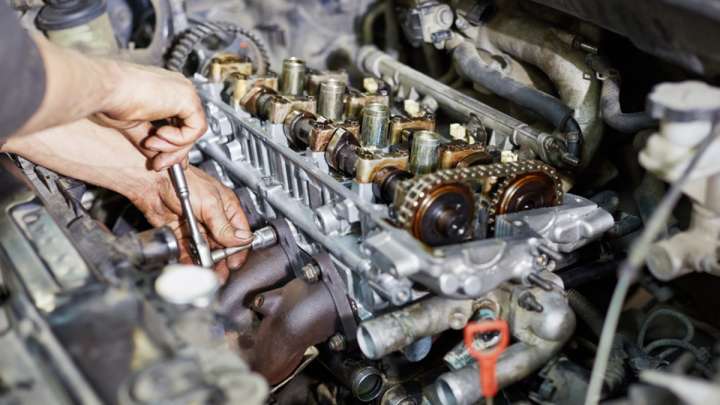No matter if you are a car lover or not, you are probably familiar with the term ‘lifter’. A lifter, or a hydraulic valve lifter, is a cylinder attached at the end of a pushrod or arm – it is here where the lifter connects to the engine valve in your vehicle.
The sole purpose of a lifter is to assist with the vehicle’s engine run quietly while also improving the internal engine performance. Lifters are designed and deployed to reduce and minimize engine noise and become noisy over time.
This is a common issue typically found in older cars that have accumulated considerable mileage – and even more so if such a vehicle has not been frequently serviced.
In layman’s terms, the valve lifter is the engine’s finger-sized piece, responsible for making an engine run noiselessly.
What Are the Signs That Your Engine Lifter Needs Repairs, And Can A Noisy Lifter Cause Any Harm?
Hearing any unusual engine noises while driving is definitely a cause for concern, even more so if you can listen to them originating from the engine.
If the sound comes from the lifter, the different sounds coming from this part might denote how harmful the noisy lifter may be.
Lifter noises that produce tapping and clicking sounds might be intermittent, or they might continue for the time your engine is running.
If the lifter noises occur every time you drive your vehicle, this might indicate a problem that requires immediate attention.
If the issue isn’t resolved as soon as possible, it might inhibit other engine components from functioning correctly and may cause severe damage to your vehicle over time
5 Practical Ways To Fix Your Engine Lifter Noise
So what can you do yourself `to fix a noisy lifter? Do I need to check my car in for an expensive service or is it possible to make some practical changes to solve the issue? Please read the following five practical ways to fix your engine lifter noise.
Oil Change – When Was the Last Time This Was Done?
If your engine oil is rarely changed, then essential oil will not be able to lubricate the engine correctly and could result in serious engine issues that can end up being costly.
Suppose there is not enough oil lubricant present in your engine. In that case, metal parts that are continuously working, revolving, and turning will contact other metal parts performing similar actions – causing the metal to wear and attrition to occur.
The vital yet straightforward step here is to change your engine oil as per the manufacturer’s recommended timeframe, and also ensure you use the correct oil gradient for your vehicle’s engine. If your vehicle usage is abnormally high, then you might need that oil change sooner than later.
Check And Replace Any Bent Push Rods
If you still hear those strange engine noises, the next area to review is the pushrods. A quick visual check is needed to see if all the pushrods are straight. If any are even slightly bent, that one could be hitting other parts of the engine every time the lifter pushes against it.
A bent rod indicates that you have possibly been a bit too heavy on the accelerator pedal. Any bent or misshapen rod needs to be replaced, and it might not be an expensive task to do. There are numerous online websites available that sell pushrods and they are very affordable.
Assuming you have purchased new rods to replace the bent one, all you will need to do is unscrew the rocker arms that support and take out the bent pushrod. Carefully check if others are bent by rolling them across a flat surface like a rolling pin.
It is ideal to fix this issue promptly. If a bent pushrod is left to clang against the engine, it could do some severe engine damage.
Check and Adjust Your Lifter’s Valves
Is it possible to adjust the adjustable lifter? Hydraulic valve lifters are self-adjusting, but there are crucial components within the self-adjuster mechanism that are not. A noisy lifter might need a valve to be tightened, or loosened.
This activity can be done yourself, but basic engine handling knowledge, along with the right tools, is required first.
To achieve this, you will want to acquire a feeler gauge and wedge it between one of the engine’s rocker arms and the stem where the valve is seated. Once this is wedged in, change the valve adjustment screw to the correct clearance distance necessary – but make sure you know precisely what this separation distance is by checking your manufacturer’s engine manual.
Using Oil Additives May Help
A further useful exercise to perform if lifter noise has not abated is to clean the lifters using oil additives. Oil additives can be used to cleanse the rocker parts, and the valve stems. This results in the removal of any grime or dirt flakes that have accumulated internally.
It is vital to know that oil additives will not change your engine oil’s viscosity or thickness, so you don’t have to worry about compromising the engine oil or its effectiveness.
Removing accumulated dirt is seemingly the most affordable choice for solving the problem of a noisy lifter.
Check And Adjust The Lifter Spacing
In other instances, the clicking or tapping noises can be due to the engine lifter’s spacing.
To remediate this scenario, simply adjust the spacing to the requisite distance specified by the manufacturer’s engine specification documentation. Readjustment of the parts connected to the lifter, and the lifter itself, can remove the offending engine tapping noise.
The lifter part is situated in the midst of the pushrod and the camshaft. If there is an increased separation between these two components, they will not be able to touch perfectly or silently.
That is why it is fundamental to monitor the engine oil and the lifters’ spacing and their primary components.
Conclusion
Hopefully, you the reader has been able to gain valuable information from this article and provide knowledge about how hydraulic valve lifters work, and what to observe if there appear to be issues arising from suspicious engine noises.






![YouTube SEO in 2024 [Definitive Guide]](https://getpixie.com/wp-content/uploads/2024/02/shutterstock_1684828252-1-150x150.jpg)








